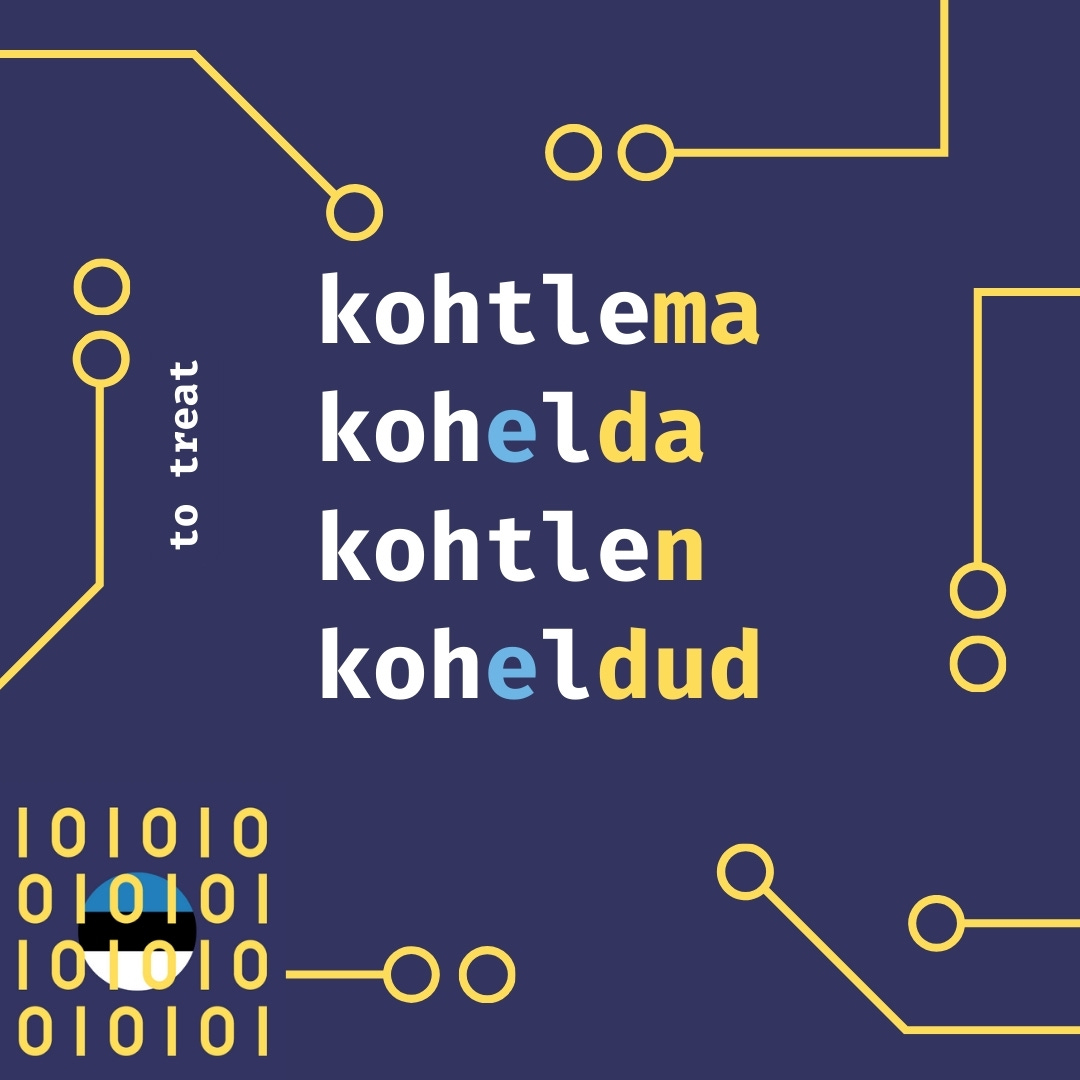Vocab: kohtlema
to treat
to treat, to behave in a certain way towards someone or something
Building blocks
koht- - place
le- -frequentative (expressing repeated, frequent action)
-ma - infinitive ending
The Estonian verb "kohtlema" evolved from the Proto-Finnic root kokta, which originally meant "place" or "location". So idiomatically speaking "kohtlema" signifies "to place oneself with someone".
How to use it
Who or what you treat in a certain way is in the Partitive case (third base form):
"Ma kohtlen oma koera õrnalt." (I treat my dog gently.)
Here are some common situations in which you can use this word:
When talking about treat objects or materials:
"Palun kohtle seda raamatut ettevaatlikult." (Please treat this book carefully.)
When talking about how you treat someone:
"Meie perekond kohtleb koera kui pereliiget." (Our family treats dog as a family member.)
When talking about how you should treat others:
"Hea teenindaja kohtleb oma kliente alati viisakalt." (A good server treats their customers always politely.)
Examples
Õpetaja kohtleb kõiki õpilasi võrdselt
Literally: “Teacher treats all students equally-from”
Idiomatically: “The teacher treats all students equally”
Õpetaja - Noun - Nom Sg, "Teacher"
kohtleb - Verb - 3P Present Sg, "treats"
kõiki - Pronoun - Partitive Sg, "all"
õpilasi - Noun - Partitive Sg, "students"
võrdselt - Adjective - Ablative Sg, "equally"

